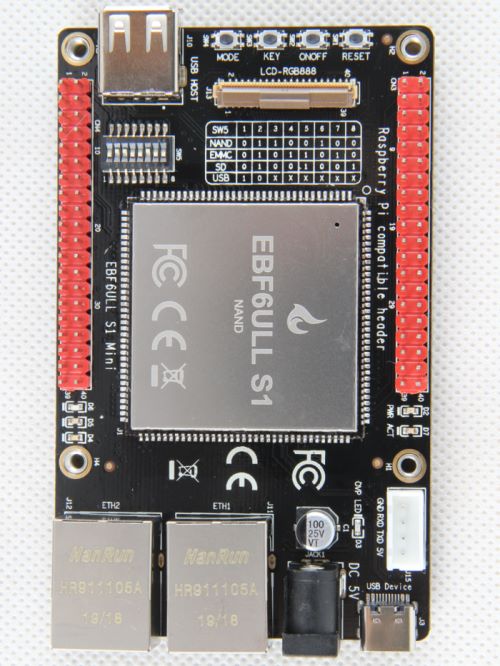I2C - Inter Integrated Circuit
GPIO 2 and GPIO 3 - the Raspberry Pi's I2C1 pins - allow for two-wire communication with a variety of external sensors and devices.
The I2C pins include a fixed 1.8 kΩ pull-up resistor to 3.3v. They are not suitable for use as general purpose IO where a pull-up might interfere.
I2C is a multi-drop bus, multiple devices can be connected to these same two pins. Each device has its own unique I2C address.
You can verify the address of connected I2C peripherals with a simple one-liner:
sudo apt-get install i2c-tools
sudo i2cdetect -y 1
You can then access I2C from Python using the smbus library:
import smbus
DEVICE_BUS = 1
DEVICE_ADDR = 0x15
bus = smbus.SMBus(DEVICE_BUS)
bus.write_byte_data(DEVICE_ADDR, 0x00, 0x01)
GPIO 0 and GPIO 1 - I2C0 - can be used as an alternate I2C bus, but are typically used by the system to read the HAT EEPROM.
Details |
 LubanCat IoT N6 Pinout
LubanCat IoT N6 Pinout